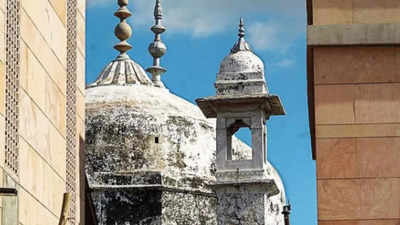
The conflict centers around a contentious religious site believed by Hindus to be the birthplace of Lord Krishna, a claim contested by the Muslim side. The Allahabad High Court's recent decision has intensified the legal battle, with both sides preparing for further judicial scrutiny.
The Hindu legal team, led by advocate Hari Shankar Jain, expressed disappointment over the High Court's ruling but affirmed their intention to challenge it at the Supreme Court. Jain confirmed that the caveat will be filed to ensure that any further proceedings related to the case are notified to their side, allowing them to respond promptly.
This move is part of a broader legal strategy to assert claims over the site, which has been a flashpoint of religious tension for decades. The Muslim side had previously argued against the Hindu claim, citing historical and legal precedents to support their stance. The High Court's rejection of their plea is seen as a significant setback for their position in the ongoing dispute.
The Mathura dispute, along with similar cases in other cities such as Ayodhya, continues to be a sensitive issue in Indian politics and society. The legal battles over these sites reflect deeper historical and cultural divisions, with each side presenting historical documents, religious texts, and legal arguments to bolster their claims.
The Supreme Court's involvement is anticipated to bring a higher level of scrutiny and potentially a final resolution to the matter. The caveat filed by the Hindu side will ensure that their perspective is considered in any future decisions by the apex court.
Legal experts suggest that the Supreme Court's eventual ruling could set a precedent for similar disputes across the country. As the case progresses, both sides are expected to intensify their efforts, with substantial public and political interest in the outcome.
The ongoing legal and religious dispute underscores the complex interplay between law, history, and faith in India. The case continues to be watched closely by both domestic and international observers, as its implications extend beyond Mathura and resonate with broader issues of religious identity and historical legacy in the region.
